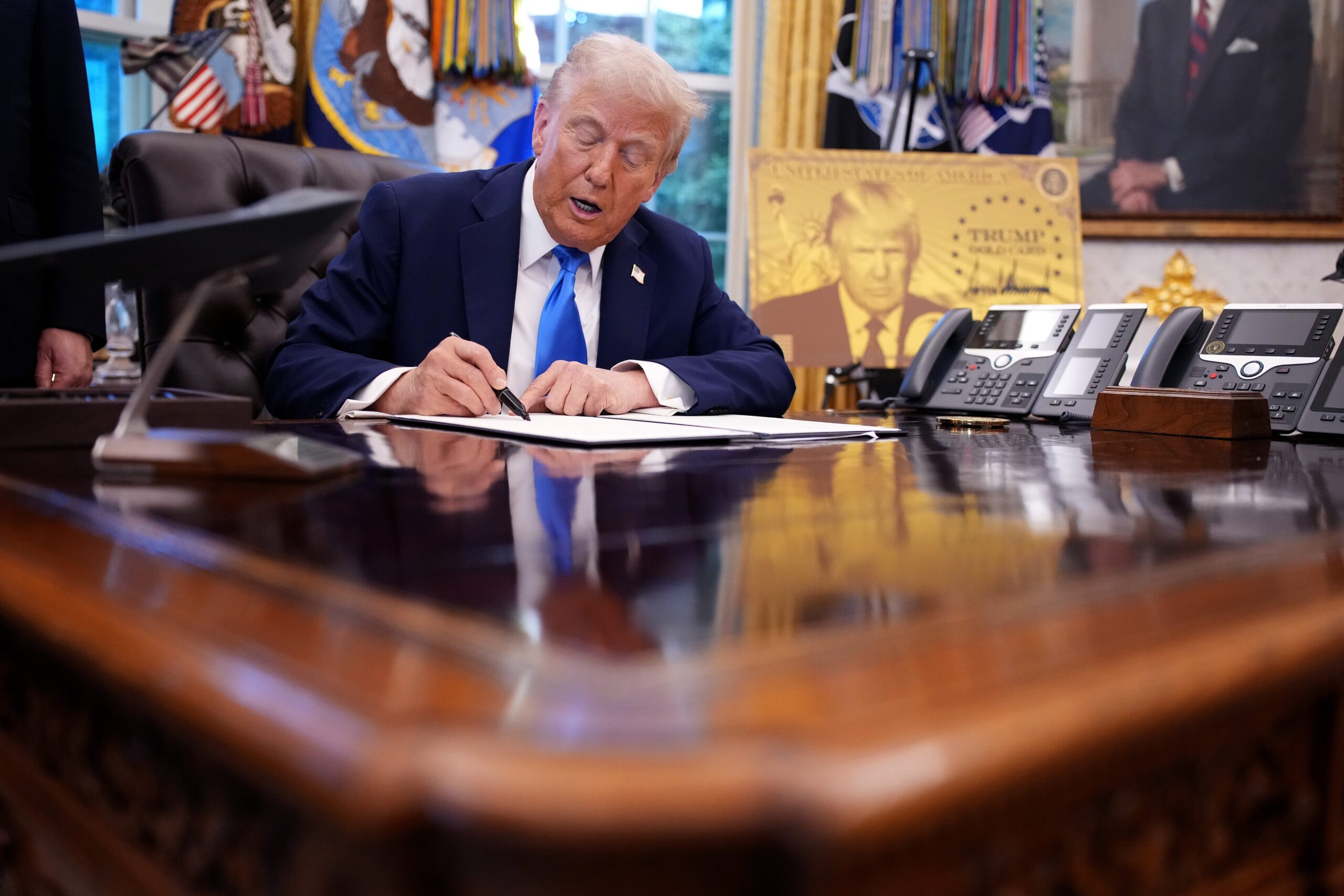The Trump administration has slapped a $100,000 (£74,000) fee on H-1B work visa applications, sparking confusion and panic among Indian communities and the tech industry.
Following the initial announcement on Friday, US employers were frantically trying to figure out the implications of the new visa rules for their foreign workers, with some reportedly advising employees to remain in the country and avoid international travel until they receive further guidance.
The move is set to disproportionately impact skilled workers from India, who have accounted for the majority of approved applications in recent years.
Here is a summary of what we know about the changes.
What is the H-1B visa?
This visa enables companies to sponsor foreign professionals with specialised skills, such as computer scientists and engineers, to work in the US for an initial period of three years, with the possibility of extending this to a maximum of six years.

The tech industry relies on the H-1B visa programme to bring skilled workers to the US, with Indian nationals accounting for nearly 75 per cent of approvals every year, according to reports, followed by Chinese workers at around 12 per cent.
This type of visa is also used by employers in other industries, including manufacturing and healthcare, to hire workers. According to FWD.us, an advocacy group focused on immigration and criminal justice, the H-1B visa is the main pathway for foreign-born physicians to practise in the US.
For international students, the visa is a crucial step to remaining in the US after finishing university. Of the 85,000 visas issued each year, via a lottery system, 20,000 are reserved for individuals who hold a master’s degree or higher.
There are as many as 730,000 H-1B holders in the US and an additional 550,000 dependants, including spouses and children, representing nearly 1.3 million US residents, according to FWD.us.
What are the new rules?
US president Donald Trump announced a $100,000 application fee for the H-1B visa, arguing that it would protect American jobs and national security.
It is a huge increase from the previous application fee of $215 (£160), with additional processing costs ranging between $2,000 and $5,000 (approximately £1,500 to £3,700).
The new policy, which took effect on Sunday, came after President Trump rolled out a $1m “gold card” visa for wealthy individuals.
“The main thing is, we’re going to have great people coming in, and they’re going to be paying,” Mr Trump said.
What has been the reaction?
The surprise announcement has stunned employers, workers and students in the US, India and elsewhere, culminating in chaotic scenes at San Francisco airport, a key gateway to Silicon Valley and the Bay Area’s elite universities.
According to various local news reports, an Emirates flight from San Francisco to Dubai was stuck on the tarmac for three hours as H-1B visa holders tried to figure out whether they would be able to re-enter the country. A video appeared to show the captain of the plane attempting to calm worried passengers on board.
The White House sought to clarify the changes over the weekend in an attempt to allay fears, stating that the $100,000 fee does not apply to existing visa holders and will be a “one-time” payment for new applicants.
The Indian government has hit back at the visa hike, warning that it will have “humanitarian consequences” for families affected by the changes.
China has not publicly commented on the change, but announced on Sunday a new “K visa” aimed at attracting professionals in science, technology, engineering and maths (STEM subjects) from all over the world. Some observers have likened this to the US’s H-1B visa.
